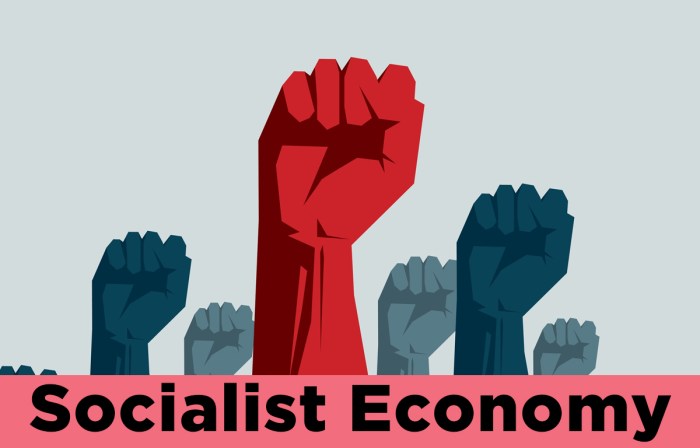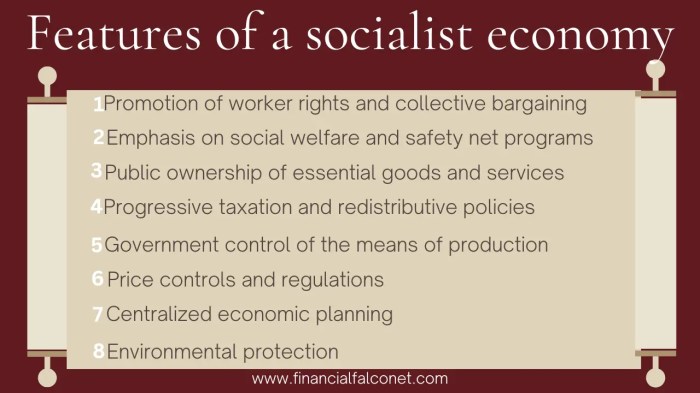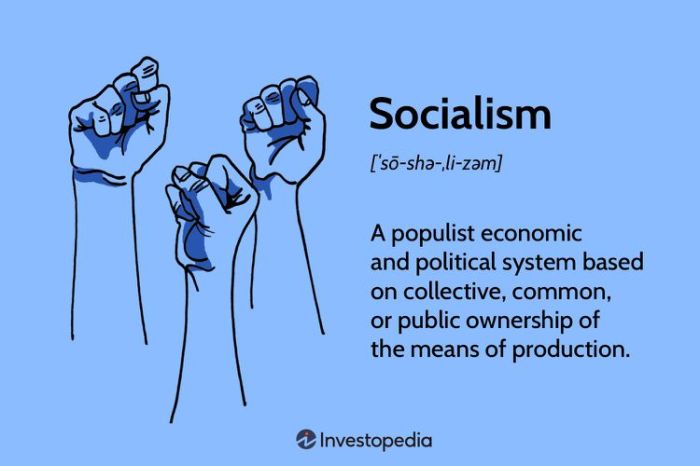Which individual would tend to favor a socialist economy? This question has been debated by economists and political scientists for decades. In this article, we will explore the various factors that may influence an individual’s support for socialist economic policies.
Some of the key factors that we will consider include socioeconomic background, political ideology, personal experiences, educational level, cultural factors, economic conditions, social welfare policies, and historical context.
Which Individual Would Tend to Favor a Socialist Economy?

Individuals’ support for socialist economies can be influenced by a complex interplay of factors, including socioeconomic background, political ideology, personal experiences, educational level, cultural factors, economic conditions, social welfare policies, and historical context.
Socioeconomic Background, Which individual would tend to favor a socialist economy
Socioeconomic status can play a significant role in shaping attitudes towards socialist economies. Individuals from lower socioeconomic backgrounds may be more likely to support socialist policies that aim to reduce economic inequality and provide greater social safety nets. This is because they may have experienced firsthand the challenges of poverty and lack of access to essential services.
- Individuals from lower socioeconomic backgrounds may have greater empathy for the disadvantaged and believe that government intervention is necessary to address social and economic disparities.
- They may have experienced firsthand the negative consequences of market failures, such as unemployment, underemployment, and lack of affordable housing.
Political Ideology
Political ideology is another important factor that influences attitudes towards socialist economies. Individuals who identify with left-wing or socialist ideologies tend to be more supportive of government intervention in the economy and policies that promote social equality. This is because they believe that capitalism is inherently exploitative and that government has a responsibility to ensure the well-being of all citizens.
- Socialists believe in the collective ownership of the means of production and distribution, and they advocate for policies that reduce economic inequality.
- Left-wing ideologies emphasize the importance of social justice and solidarity, and they view socialism as a way to create a more equitable society.
Personal Experiences
Personal experiences can also shape individuals’ views on socialist economies. Positive experiences with government programs or economic policies that have benefited them or their loved ones may lead to a more favorable view of socialism. Conversely, negative experiences with government bureaucracy or perceived inefficiencies in socialist systems can lead to opposition to socialist policies.
- Individuals who have benefited from government-funded healthcare or education may be more likely to support socialist policies that expand access to these services.
- Negative experiences with government bureaucracy or perceived inefficiencies in socialist systems can lead to skepticism about the effectiveness of government intervention in the economy.
Educational Level
Educational level can also influence attitudes towards socialist economies. Higher levels of education may be associated with a greater understanding of economic systems and a more nuanced view of the benefits and drawbacks of socialism. Individuals with higher levels of education may be more likely to support socialist policies that are well-designed and evidence-based.
- Higher levels of education may provide individuals with a better understanding of the complexities of economic systems and the potential benefits of government intervention.
- Education can also expose individuals to different perspectives on socialism and help them develop critical thinking skills to evaluate the strengths and weaknesses of different economic models.
FAQ Summary: Which Individual Would Tend To Favor A Socialist Economy
What is socialism?
Socialism is a political and economic system in which the means of production are owned and controlled by the community as a whole.
What are the key principles of socialism?
The key principles of socialism include social ownership of the means of production, democratic control of the economy, and equitable distribution of wealth.
What are the different types of socialist economies?
There are many different types of socialist economies, including market socialism, state socialism, and cooperative socialism.


